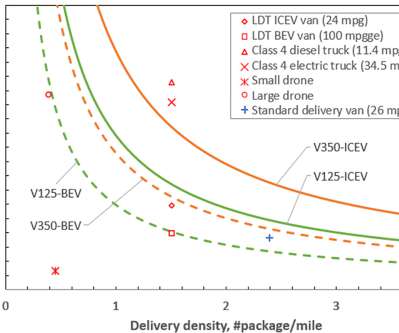Responsible Battery Coalition and U Michigan launch study to compare electric and gas vehicle lifetime costs
Green Car Congress
OCTOBER 31, 2022
The Responsible Battery Coalition, in partnership with the University of Michigan Center for Sustainable Systems, launched a comprehensive research project to compare the total cost of ownership of gas and electric vehicles (EVs). Gregory Keoleian, Director of the Center for Sustainable Systems at the University of Michigan.







































Let's personalize your content